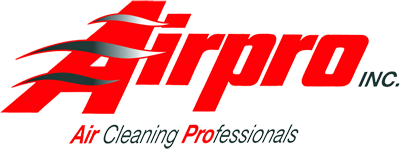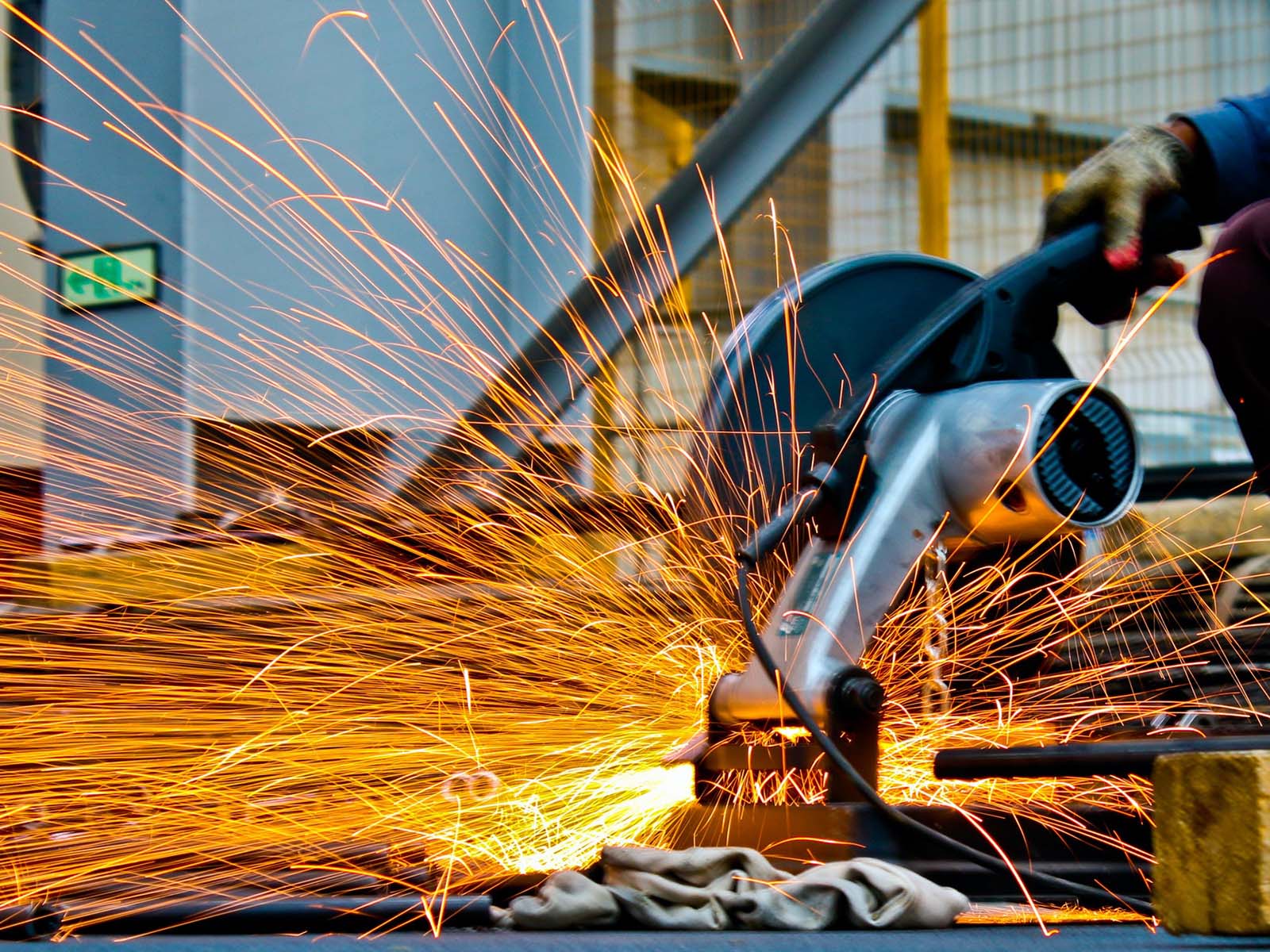Dust Collection for Fabrication Shops
Metal working and fabrication facilities produce airborne metallic powder and smoke. Designing and implementing an effective dust collection system is vital for protecting workers from health risks, and protecting the facility from potential explosions from combustible dust. Source capture and ambient dust collection remove harmful smoke and particulate (metallic toxins) from the air. Meeting OSHA and NFPA regulations, as well as local, state, and federal regulations keeps the facility safe and running smoothly.
Challenges
Metalworking and fabrication create metallic dust from a variety of processes. Grinding, turning, laser and plasma cutting, welding, grinding and polishing—all of these produce ultrafine metallic dust that become suspended in the air. Airborne dust can create both health hazards and combustible dust hazards if not extracted from the workplace properly.
- Source capture design. . Dust collection hoods and vents remove metallic particulate from the air at the source of generation. Fume extraction arms help capture toxic fumes from welding during fabrication.
- Combustible dust applications. If metallic dust becomes airborne in an enclosed space, it can ignite from a spark or other ignition source, causing a devastating explosion. Removing combustible dust is important to prevent loss of life and damage to machinery/property. Explosion prevention equipment, spark detection systems, and fire suppression equipment are in place to mitigate these risks.
Needs
- Exhaust fans and filtration systems. Powerful fans and vacuums help port dust and fumes to filters, where air can either be extracted from the workplace, or recirculated after being thoroughly cleaned. Ambient air cleaners can also help purify the air in the facility from contaminants.
- Central collection systems for production and manufacturing. A central dust collection or fume collection system has a powerful collection unit in the center, to which individual modules are connected.
Permissible Exposure Limits (PELs)
Permissible exposure limits are how much of a substance workers can be exposed to over an 8-hour shift. These are PELs for substances commonly found in metalworking.
- Cadmium: 0.005 mg/m3
- Beryllium: 0.0002 mg/m3
- Hexavalent chromium: 0.005 mg/m3
- Lead: 0.05 mg/m3
- Nickel: 1.0 mg/m3
- Manganese: 5.0 mg/m3
- Cobalt: 0.1 mg/m3
- Aluminum: 15 mg/m3
Overexposure to certain metallic dusts can cause severe neurological or organ damage. Metallic dust suspended in the air can also combust under the right conditions. Ensuring there is sufficient dust collection in a machining facility is of prime importance.
Common Dust Collection Equipment
- Ambient air cleaners help clean metallic particulate from the air in the facility.
- Cartridge dust collectors are often used in fabrication and metalworking shops because the pleated filters can trap small particulate. HEPA filters are also available for most cartridge collectors as an added layer of filtration protection from the smoke fumes generated.
- Downdraft tables, booths, extraction arms and source capture welding torches. Downdraft tables pull welding and grinding smoke and dust into a collection unit, while booths filter the air in a larger area. This protects worker health, and prevent harmful gases, particulate and dust from accumulating in the workplace.
- Explosion prevention and fire suppression equipment are essential components of a dust collection system design where metallic and/or combustible dust is generated. Most metal dust is considered combustible and protecting worker safety is a top priority.
- Fume extractors are often used in welding shops. Extraction arms capture hazardous fumes at the source of generation protecting the Operators’ Breathing Zone (OBZ). Fume Extraction Welding Torches are a more recent technology providing another solution for source capture of welding smoke.
- Industrial vacuums are useful for cleaning floors from metallic residue in housekeeping operations.
- Mist collectors filter air in machine shops, removing harmful oil mist from CNC machines, and during milling and grinding processes. See Mist and Wet Collectors.

